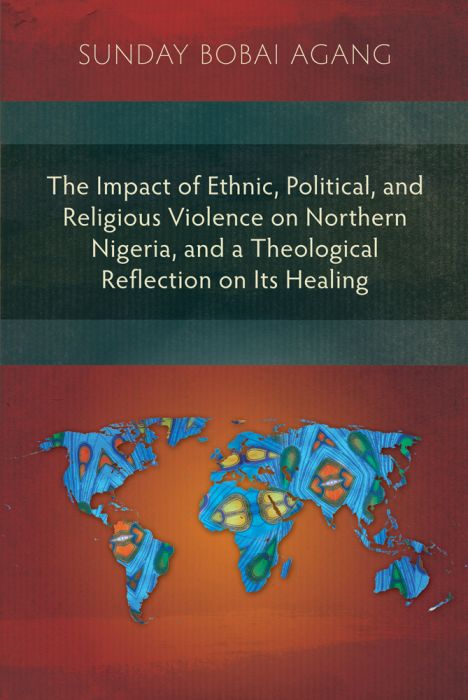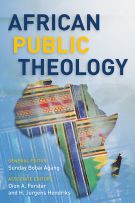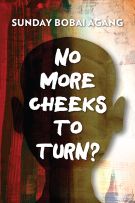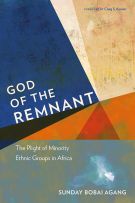| ISBN: | 9781907713156 |
|---|---|
| Imprint: | Langham Academic |
| Format: | Paperback |
| Dimensions (mm): | 229 x 152 x 17 |
| Publication Date: | 07/09/2011 |
| Pages: | 332 |
| Series: | Studies in Public Theology |
| Language: | English |

The Impact of Ethnic, Political, and Religious Violence on Northern Nigeria, and a Theological Reflection on Its Healing
This publication seeks to challenge established thinking about the causes of violence in Northern Nigeria. It explores immediate and long-term effects of that violence through reflection, study, and survey of previous research. The fundamental argument within is that ethnic, political and religious violence has affected Christian perspective and core values and thus has hampered efforts towards just peacemaking.
Endorsements
Excellent argument: the violence has major impact on the people. The violence is not simply caused by Muslim-Christian hostility, but more by power-grabbing, authoritarianism, and economic injustice by those in power. Therefore the solution needs to be justice, checks and balances, and transparency. I recommend that the proposal that Christian and Muslim people should unite together in pushing for justice and checks and balances and transparency. The concluding chapter says that. It’s a major idea and should be highlighted and dramatized for publication.
Professor Glen H. Stassen
Lewis B. Smedes Professor of Christian Ethics,
Fuller Theological Seminary
Sunday Agang’s work focuses on analyzing the impact of violence on the gospel vis-à-vis the role of Christian theology and Christology, particularly the Sermon on the Mount, in Northern Nigeria. He uses a number of reflections from scholars in the global north, especially Jürgen Moltmann and Walter Wink (and their interpreters) to revisit the politics of Jesus and the theology of nonviolence as articulated by the great practitioners: Leo Tolstoy, M. Gandhi, Dorothy Day, Martin Luther King Jr., and Desmond Tutu. His study begs the question how much transformative potential could be embedded in a single privileged discourse. Should we not combine all the discourses as cameos in the quest for a viable solution?
The Late Professor Ogbu Uke Kalu
Former Henry Winters Luce Professor of World Christianity and Missions,
McCormick Theological Seminary
Sunday Agang has written a book that is not only very well researched, balanced, insightful, and well written, but has produced a work that is rare in doctoral dissertation—it is courageous, humane, and deeply moving. It is broader in scope than most reports on ethnic, political, and religious violence emanating from Nigeria. . . it urges us to think more deeply about the nature of violence and its extent, which has left Nigeria as a “crippled giant.” Far from bringing a new era of peace and prosperity, the end of British rule opened the gates to chaotic violence. This book explores the dynamics of this chaos, and what a genuinely Christian theology and praxis can do for Christians as they seek to ameliorate the situation. It is not only a fine academic study, but also a study that could make a contribution to justice and peace making.
Professor Colin Brown
Senior Professor of Systematic Theology,
Fuller Theological Seminary
Table of Contents
- Acknowledgments
- Abstract
- Introduction
- Chapter 1
- Understanding the Impact of Ethnic, Political, and Religious Violence on Nigeria
- Abstract
- Introduction
- 1.1 The Social Context of Violence in Nigeria
- 1.2 An Analysis of the Causes of Violence
- 1.3 An Alternative Approach to the Issue of Violence in Northern Nigeria
- Chapter 2
- Rethinking Ethnic, Political, and Religious Violence on Nigeria
- Abstract
- 1. Toward an Analysis of the Concept of Violence
- 1.1 Defining Violence
- 1.2 The Dimensions of Violence
- 2. Summary
- 3. Conclusion
- Chapter 3
- Understanding the Triadic Connections of Ethnic, Religious, and Political Violence in Northern Nigeria
- 1. The Issues at Stake
- 1.1 An Analysis of the Assumption
- 1.2 The Commercialization of Religion
- 1.3 The Impact of Mammon vs. Jihad
- 2. The Triadic Connection of Violence
- 3. Conclusion
- Chapter 4
- Understanding the Root Causes of Ethnic, Political, and Religious Violence in Nigeria
- Introduction
- 1. The Broad-Based Analysis of the Perceived vs. Real Threat
- 1.1 The Humanist Agenda in Nigeria
- 1.2 An Analysis of the Sources of the Threat
- 1.3 An Anatomy of Nigeria’s Federalism
- 2. A Case Study of Some Selected Practical Situations of Violence in Northern Nigeria
- 2.1 Kafanchan Crisis, March 1987
- 2.2 Kano Crisis, October 1991
- 2.3 Kaduna Shari’ah Crisis, February 2000
- 3. Conclusion
- Chapter 5
- Understanding the Impact of Violence on Christians’s Christology: Moltmann’s Experiential Contribution
- 1. The Beginnings of Moltmann’s Theological Journey
- 1.1 Encountering Jesus Christ
- 1.2 Questions Raised by World War II
- 1.3 Moltmann’s Central Thesis
- 1.4 Developing Creative Love Creates an Alternative to Violence: Dialogue
- 2. Insights from Moltmann’s Theme of God Entering into Suffering
- 2.1 M. Douglas Meeks
- 2.2 Richard Bauckham
- 3. The Prevailing Paradigm: Enculturation and Liberation
- 3.1 Contrasting Liberation Theology in Africa with Those of Latin America and the U.S.
- 3.2 African Liberation Defined
- 4. Critiquing Moltmann’s Work
- 5. Moltmann’s Christological and Theological Contributions to Understanding Northern Nigeria’s Culture of Violence: A Proposal for an Analogous Application
- 5.1 Moltmann’s Contribution to an Understanding of the Way of Jesus
- 5.2 Understanding the Concept of Righteousness-creating Justice
- 6. Conclusion
- Chapter 6
- Understanding the Language of the Powers in Northern Nigeria: The Contribution of Walter Wink
- 1. Seeing Power as Domination
- 1.1 Evil and Deception as the Concrete Manifestations of Power
- 1.2 Defining Power
- 1.3 Understanding the Sociopolitical and Socioeconomic Structures of Injustice in the Greco-Roman World
- 1.4 Summary
- 2. The New Testament’s Context of the Language of the Powers and Authorities: Walter Wink’s and other Scholars’ Contribution
- 2.1 Walter Wink’s Hypothesis
- 2.2 Critiquing Wink’s Hypothesis?
- 3. Comparing Jesus’ and Paul’s Ideas of the Powers
- 3.1 Jesus’ Attitude toward Power and Authority
- 3.2 Marcan Jesus: Compassion as Power
- 3.3 The Language of the Powers in Romans 13:1–7
- 3.4 Paul’s and Peter’s Ethics in the Context of the Powers
- 4. Analyzing the Power Structure of Northern Nigeria
- 4.1 Sociopolitical and Socioeconomic Matters in Northern Nigeria
- 4.2 Practicing the Way of Jesus in Northern Nigeria’s Context
- 5. Conclusion
- Chapter 7
- An Ethical Framework For Giving Up Violence in Northern Nigeria
- 1. Biblical Perspectives and Values
- 2. Ethnic Cooperation, Solidarity, Participation, and Recognition of Interdependency
- 3. Religious Freedom
- 4. Socioeconomic and Socio-political Justice
- 5. Economic Justice
- 6. Redemptive Examples of the Way of Jesus: Practicing Nonviolent Direct Action in Various Contexts
- 6.1 Leo Tolstoy: Love as the Path beyond Violence: Russian Christian Context
- 6.2 Mohandas K. Gandhi’s Path beyond Violence: Indian Context
- 6.3 Dorothy Day and the Path of Nonviolence: Roman Catholic Feminist Context
- 6.3 Martin Luther King Jr.’s Path to Nonviolence: African American Perspective
- 6.4 Desmond Tutu: Reconciliation as the Path Beyond Violence: South African Context
- 7. Doing Political and Theological Reflection: Assessing Ideologies
- Conclusion
- Bibliography











